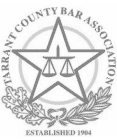When should you consider action for a non-compete violation?
Clarity is the most important detail in any contractual agreements. It is a legal essential, yet certain documents always have more terminology that is left open to interpretation. The non-compete waiver an employee signs when changing jobs is among those, with key elements that determine if it is enforceable if it is challenged in court. The agreement is a means of protection for the business but it cannot hinder the former employee's prospects.
Key terms
Texas courts enforce a non-compete by how reasonable the demands are.
Specifically this pertains to:
- Protection of business assets and information
- Scope of non-compete (meaning time period of the agreement and job duties before and after)
- Geography of non-compete
Uncertain terms
Legal questions arise when a business loses an employee because these terms themselves are variable. What is a reasonable time period or geography to include in a non-compete agreement? If your main competitor is 99 miles away, can you define the non-compete as effective within 100 miles, for example, if your region is typically defined as a 50-mile radius? If a salesperson of your software firm is leaving to work in sales for a vacuum company, is there enough crossover to justify action?
Court history
Non-compete waivers exist to protect business assets and secrets, but they have been abused to "make an example" of former employees and to maintain control over current workers. As a result, the Texas court system reviews cases carefully to make sure that both parties are protected fairly.
While a non-compete's purpose is to protect the business, it cannot have a significant negative impact on an individual's right to earn a living. The court measures the impact of the agreement versus the rights of the individual, preferring a balance between the two. A long-term waiver that bars a former employer from work in a field is unlikely to be enforced by a court. Instead, it may be invalidated or amended to a shorter term. The same holds with geography and interpretation of reasonable competition. Individualized agreements have a better enforcement history than universal company-wide agreements, especially if the former employee is awarded something for his or her inconveniences.
Most common violations
While non-compete waivers are often rife with ambiguity, there are undisputed violations that occur. If a former employee has moved to a direct competitor and recruited others from your business, this is measurable conflict. Stealing information, either client lists or trade secrets, is also an easily proven breach. The sooner the infraction surfaces after a job change, the more evident there is a violation. Quick action and resolution is important to protect your business from further damage.
Means of enforcement
Once a former employee is found guilty of breaking the agreement, punishments vary by severity and industry. Monetary damages are a common payout, while the more serious punishment is a court-issued injunction that bars a former employee from working for a new employer — sometimes for a probationary period and sometimes permanently removing the recruit from his or her new position.
Violating a non-compete waiver is difficult to prove in the courtroom due to the open interpretation of the basic terminology. They are a complicated topic with subtle nuance that can make or break a case. However, such waivers exist to protect businesses from unfair practices and unethical behavior within their industries. If damage to the company is proven without the waiver impeding a former employee's well being, it's important to act and to keep your business property confidential. It's your right as a business to keep your secrets, just like it's an employee's right to move about in the workforce.
We're Here When You're Ready
To set up a consultation with our attorneys and get the legal help you need, please call 817-645-1717 or fill out the form below:
The use of the Internet or this form for communication with the firm or any individual member of the firm does not establish an attorney-client relationship. Confidential or time-sensitive information should not be sent through this form.
I have read and understand the Disclaimer and Privacy Policy.

 817-645-1717
817-645-1717









